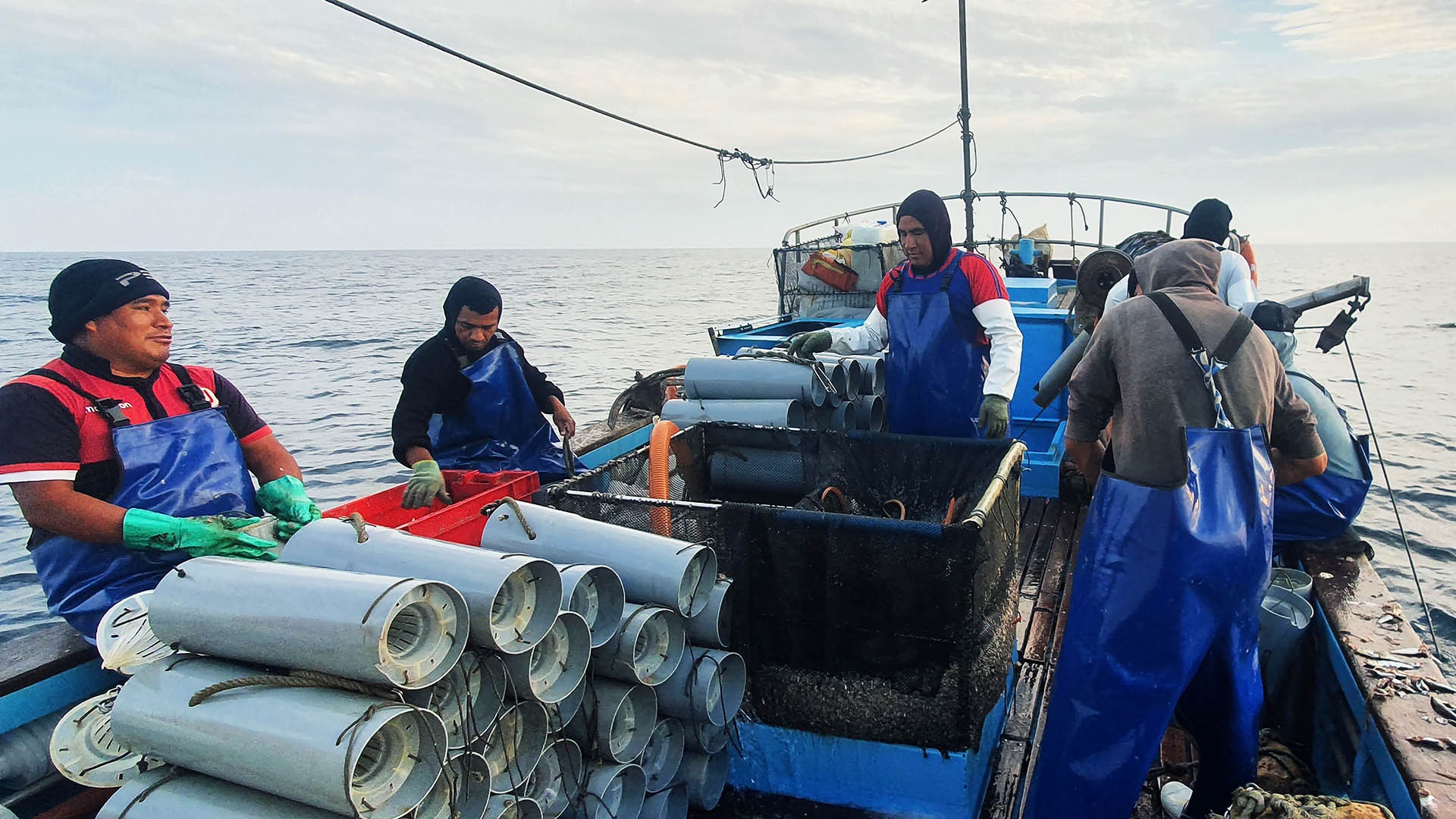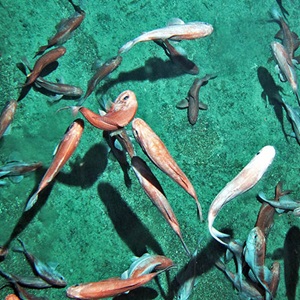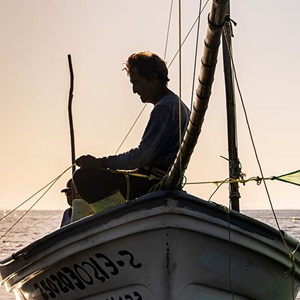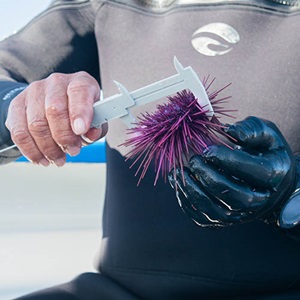Long established fishery hopes to work toward MSC certification.
• Strengthen monitoring systems with logbooks
• Improve understanding of eel population genetics, growth, distribution and structure
• Develop Management Strategy Evaluation (MSE), Harvest Control Rules (HCR) and strengthen stock
assessment model
• Proposals for improving Fisheries Management Regulation
Start date: October 2023
$63,210 USD
Transition Assistance Fund
Awardee
REDES-Sostenibilidad Pesquera
Fishery
North Peru eel trap fishery
Progress towards certification
The Northern Peru eel trap fishery is long-established, harvesting common snake eels (Ophichthus remiger) mainly for the Asian market, where the eels have high commercial value. The fleet is comprised of nineteen vessels that fish off the coastal regions of Tumbes and Piura, where the highest concentration of eels are found. The fishery uses traps, laid in sandy and muddy bottom substrates.
The fishery entered the In-Transition to MSC Program in 2023 and its grant from the Transition Assistance Fund will be used for activities that will help it move closer towards certification to the MSC Fisheries Standard. The fishery hopes to improve its fishing practices and strengthen its management plans by early 2025.
What the project will do
The eel fishery aims to ‘harmonise’ efforts with other fisheries in the region by ensuring common and overlapping areas of work are optimised and not in conflict with each other. It will work with experienced consultants at REDES-Sostenibilidad Pesquera and the Association of Peruvian Eel Producers (AAPA) to improve performance and sustainability.

“This funding will allow us to complete important research activities on the species, significantly strengthening the assessment and management of this resource. It will help us to identify the impact of the fishery on the ecosystem and support efforts to raise awareness and improve management mechanisms”
Director, REDES-Sostenibilidad Pesquera
Funding will be used so that the entire fishing fleet can collect, and record data around catch and compliance with quotas. Skippers and crews will take responsibility for keeping and updating fishing logbooks. The information will then be used to implement and strengthen the fishery’s monitoring system. The fishery has already designed appropriate logs, a manual for crews, and implemented training in protocols for record keeping. Data collected will provide input for accurate stock assessments and fishery monitoring.
Additionally, the new data will close knowledge gaps around the species’ natural history and inform the management strategy evaluation and harvest control rules -- measures requiring catch to be adjusted in response to stock changes.
Related projects

New Zealand orange roughy: Age models and Harvest Control Rules

Improving understanding of stocks in the Mexico Pacific artisanal shrimp fishery
-.tmb-thumb300.jpg?Status=Master&Culture=en&sfvrsn=a0cda56e_1)
Making Kerala’s deep sea shrimp fishing sustainable

